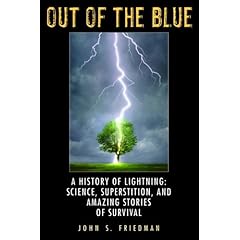XV. "Watch against the pride of your own reason and a vain conceit of your own intellectual powers, with the neglect of divine aid and blessing. Presume not upon great attainments in knowledge by your own self-sufficiency : those who trust to their own understanding entirely are pronounced fools in the word of God ; and it is the wisest of men gives them this character. "He that trusteth in his own heart is a fool," Prov. 28: 26. And the same divine writer advises us to " trust in the Lord with all our heart, and not to lean to our understandings, nor to be wise in our own eyes," chap. 3 : 5, 7.
XVI. Offer up, therefore, your daily requests to God the Father of lights, that He would bless all your attempts and labors in reading, study, and conversation. Think with yourself how easily and how insensibly, by one turn of thought, He can lead you into a large scene of useful ideas: He can teach you to lay hold on a clue which may guide your thoughts with safety and ease through all the difficulties of an intricate subject. Think how easily the Author of your beings can direct your motions, by His providence, so that the glance of an eye, or a word striking the ear, or a sudden turn of the fancy, shall conduct you to a train of happy sentiments. By His secret and supreme method of government, He can draw you to read such a treatise, or converse with such a person, who may give you more light into some deep subject in an hour, than you could obtain by a month of your own solitary labor.
Implore constantly His divine grace to point your inclination to proper studies, and to fix your heart there. He can keep off temptations on the right hand, and on the left, both by the course of His providence, and by the secret and insensible intimations of His Spirit. He can guard your understandings from every evil influence of error, and secure you from the danger of evil books and men, which might otherwise have a fatal effect and lead you into pernicious mistakes.
Even the poets call upon the muse as a goddess to assist them in their compositions.
The first lines of Homer in his Iliad and his Odyssey, the first line of Mussaeus in his song of Hero and Leander, the beginning of Hesiod in his poem of Works and Days, and several others furnish us with sufficient examples of this kind; nor does Ovid leave out this piece of devotion, as he begins his stories of the Metamorphoses. Christianity so much the more obliges us, by the precepts of Scripture, to invoke the assistance of the true God in all our labors of the mind, for the improvement of ourselves and others. Bishop Saunderson says, that study without prayer is atheism, as well as that prayer without study is presumption. And we are still more abundantly encouraged by the testimony of those who have acknowledged, from their own experience, that sincere prayer was no hinderance to their studies: they have gotten more knowledge sometimes upon their knees, than by their labor in perusing a variety of authors; and they have left this observation for such as follow, Rene orasse est bene studuisse, "praying is the best studying."
To conclude, let industry and devotion join together, and you need not doubt the happy success. Prov. 2:2: "Incline thine ear to wisdom; apply thine heart to understanding; cry after knowledge, and lift up thy voice: seek her as silver, and search for her as for hidden treasures; then shalt thou understand the fear of the Lord," etc., which "is the beginning of wisdom." It is "the Lord who gives wisdom even to the simple, and out of his mouth cometh knowledge and understanding."
-Isaac Watts
Wednesday, December 09, 2009
The philosophical miscellany of a journey through yet undiscovered country.
About Me

- Name: Marcian
- Location: Arlington | 76006, United States
First and foremost, a sinner saved by grace. Young woman grappling with the physical and emotional rigors of adulthood. Living the life I never wanted, and loving every minute of it. Giving every moment to God and trusting in His providence. And running the race for the imperishable crown, only to one day cast it at the feet of Him who won it for me.
Atmospheric Conditions
- Arlington Weather
- Severe Weather
- National Centers for Environmental Prediction
- Texas Severe Storm Association
- AMS/NWA North Texas Chapter
- Tempest Tours SCE
- Extreme Instability
- The Extreme Instability Blog Storm Effects
- Bill Reid's StormBruiser
- Everything Weather
- Meteorologist Jeff Haby
- Stormtrack.org
- StormScapes
- American Meteorological Society
- Lightning Field Installation
- Mike Peregrine
- High Plains Regional Climate Center
Essential Blogs
- Centuri0n
- Don Sands
- Truth Matters
- Bluecollar
- Sarah's Journal
- Apples of Gold
- Pearls and Diamonds
- Jazzy Cat
- GOOD NIGHT SAFE HOME
- More Books and Things
- JeepsterBoy
- Sweet Tea With Lemon
- six steps | 2 Samuel 6:13
- Old Paths
- The Upward Call
- Beholding His Glory
- Scribe
- Fish and Cans
- Shadow of His Wings
- Against Heresies
- Voice of Vision
- Doxoblogy
- Joe's Jottings
- Captain Impossible
- The Independent Variable
- Journey of the Heart
- Amazing Grace and Old Chevys
- Camp on This
- Run2Cross
- Duologos
- TeamPyro
- Mike Ratliff
- Sharper Iron
- Coffee Trader News
- Old Truth
- The Shepherd's Scrapbook
- Baptist Girl
- Practicing Theology
- Our Daily Thread
- Biblical Christianity
- roadwearyexpastor
- The English Muffin
- Craft Leftovers
Currently Reading
Previous Posts
- I am currently reading Darwin's On the Origin of S...
- Now, I'm not going to say this out too loudly, but...
- On doing hard things
- Change Upon ChangeElizabeth Barrett BrowningFive m...
- Step 1 of Directing Myself
- Soliciting advice
- Update
- It's just one of those places in life where I feel...
- What I've discovered lately is that we all seem to...
- Recession









0 Comments:
Post a Comment
<< Home